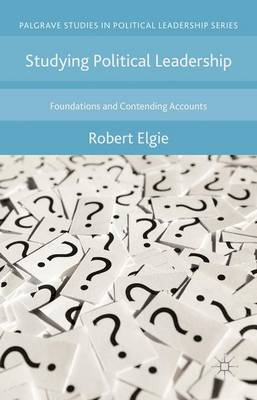Palgrave Studies in Political Leadership
2 total works
Why are some political leaders stronger than others? How do we make sense of the interaction between the leader's personality and the context that the leader faces? This book provides a unique way of approaching these questions, identifying the very different philosophical foundations that underpin the contemporary study of political leadership.
This book provides a philosophically informed, institutionalist account of political leadership. It is rooted in a certain version of the American pragmatist philosophical tradition and privileges the study of institutions as a cause of leadership outcomes. The book adopts a multi-method approach. It includes a laboratory experiment identifying the psychological effects of presidentialism and parliamentarism on leader behavior; a large-n statistical study of the impact of semi-presidentialism on voter choice; an expert survey of president/cabinet conflict in Europe; an analysis of presidential control over cabinet composition in France; and two in-depth case studies of the circumstances surrounding constitutional choice in France and Romania. This book is aimed at scholars and students of political leadership, political institutions, the philosophy of the social sciences, and research methods. Overall, it shows that an institutional account has the potential to generate well-settled beliefs about the causes of leadership outcomes.

